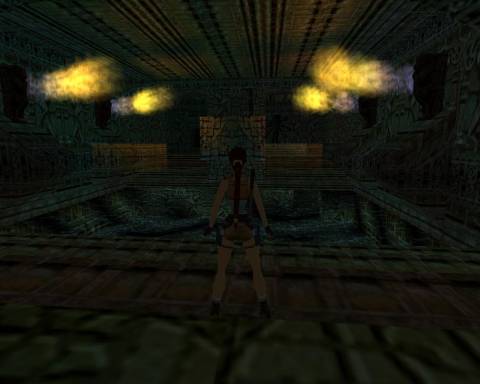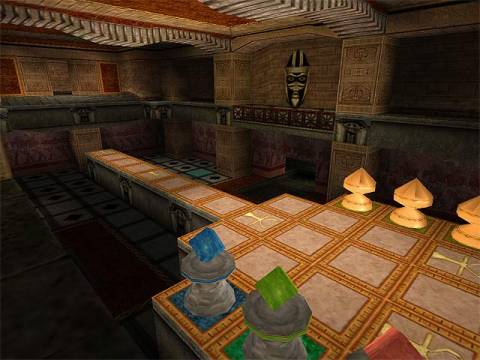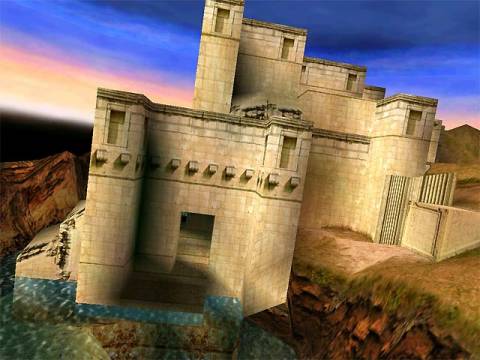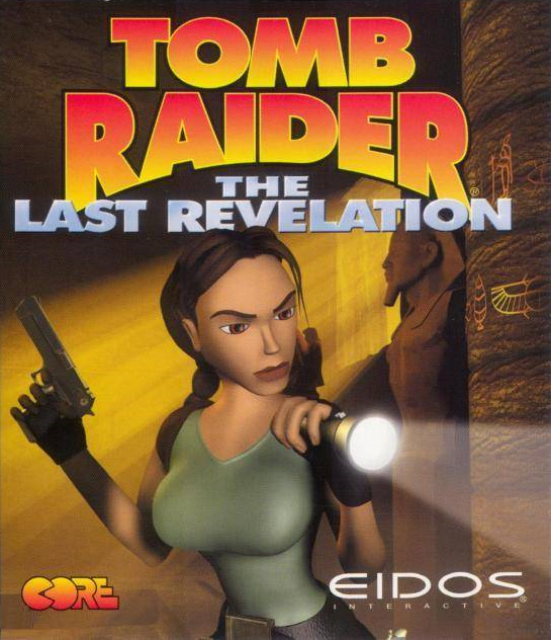There is always a risk involved with returning to childhood favourites. It's often the case that our indiscriminate young minds forged pleasant memories out of things that, in hindsight, really weren't that good. In returning to an old, once-loved video game, you run the risk of upsetting those memories, smashing the rose-tinted spectacles and discovering the ugly truth. As a result, there are a lot of us within the gaming community who'd rather leave the past in the past and preserve the games of our youth, afraid of potentially damaging them. It's a strange brew indeed, an unusual mixture of humble reverence and outright fear.

For me, that concoction of nostalgia and trepidation is probably no better exemplified than in the form of the beginnings of the Tomb Raider franchise. I spent a significant portion of my formative years playing through Lara Croft's first five adventures, gutting the unexplored ruins of ancient civilizations and escaping with both the spoils and my virtual life. They were also enjoyed by my parents - many evenings were spent with the three of us sitting in front of the TV, controller in my dad's hand, my mum and I offering suggestions over his shoulder as he wrestled with the latest puzzle. I remember days, sometimes even weeks, were spent on a single level, trying to find solutions to seemingly unsolvable conundrums. Even now, I continue to look back on all of those five games with a great degree of fondness. That's why returning to any of them after so many years felt like such a daunting prospect.
The specific instalment I chose to revisit was Lara's fourth outing, subtitled The Last Revelation. I chose it because it's the game I had the fondest, clearest memories of, and also because despite owning it for all these years, I'd never actually finished it. I cautiously picked it up at the end of September and played through it. Over the course of my adventure, there were definitely some moments that served to shatter my pristine memories of playing it as a kid. On the flip side, though, there were just as many moments that supported those memories. More to the point, the problems that I did encounter weren't ones that I was expecting to encounter. After seeing that elusive final cut-scene for the first time ever, I was left with the knowledge that although The Last Revelation may not be as great as I once thought, it's still very challenging, and very enjoyable to play. Bottom line - it's a good game.

I think a big part of why The Last Revelation is still fun to play is the focus it places on exploration and adventure game-style puzzle-solving. The PlayStation-era Tomb Raider games habitually shirked action in favour of adventure, with combat only ever serving as an accessory to the main platforming-and-puzzle-solving aspect of the gameplay. The Last Revelation is no exception, with some challenging obstacle course-style sequences that are often tough to tackle, but that difficulty is balanced out well by the sense of reward and achievement that accompanies a successful run. The game also features a huge number of memorable puzzles, some of them spanning across multiple levels in scope, and most of which require a great deal of thought and exploration in order to fully understand and solve. The methodical, deliberate pacing may not be very cinematic, but it lends a touch of authenticity to the tomb-raiding experience that also provides a refreshing change of style from today's myriad action-movie-aping releases.
It's helped by a very cohesive presentation, brought about by the game's decision to forgo the series' tendency towards globetrotting and instead restrict the action to a single country - Egypt. Because of this, the story doesn't suffer the same pitfalls as its three predecessors - there are no tenuous excuses linking an improbably-located artifact on one side of the planet to an equally improbably-located artifact on the other. The entire story is rooted within Egyptian mythology, and most of the game's levels and puzzles are, too (save for some cameos by ancient Greek deities halfway through the game). The sense of focus and unity that this bestows on The Last Revelation is certainly commendable, even if the story itself doesn't quite live up to the promise of its trappings.

The game looks pretty good on its age, too. When looking back at games released before the turn of the millennium, a lot of people are very critical of aesthetics - in my opinion unfairly so. A lot of what's going on on-screen in The Last Revelation still looks good, if not outright impressive. The lighting effects are great, to the point where they actually have a positive impact on gameplay - Lara has flares that can light up darkened corners for exploration, often revealing hidden items. The environments are noticeably blocky, but they're by no means ugly - the interiors in particular look great, not suffering from the painfully short draw distance of the exterior environments. There are also a lot of nice, subtle touches to the graphical engine, such as shimmering water surfaces and animated skies, that really add something to the look of the game. Considering it's twelve years old, The Last Revelation is a pretty beautiful video game.
The Last Revelation's problems lie more in its engine than in its presentation or execution. For everything the game does brilliantly, the game engine seems to counterbalance it in some way. The game's controls can be pretty cumbersome and make some of the more precise platforming segments in the game's final hours feel like a real chore. The combat mechanics are also very bare-bones, lacking any real depth aside from a varied arsenal of weaponry, although this doesn't matter too much given the auxiliary nature of gunplay in the game. Put simply, it just seems like the game engine is constantly at odds with what the developers hoped to do with it. It does bend to their will in most cases, but it does so very reluctantly.
There are also some notable problems with aspects of the game's design, and most obviously with the overlap between puzzle design and level design. As mentioned above, a few of the puzzles in The Last Revelation span multiple levels - it's possible to pick up an item in one level, which will enable you to reach an item in a second level, which is combined with another item procured in a third level, in order to unlock a door back in the original level. For the most part, the system works well, allowing players to freely move back and forth between levels until they find a solution. Unfortunately, the game doesn't do a great job of pointing the player in the right direction - something it really should have gone out of its way to do, if only to introduce the notion of multi-level puzzles to established Tomb Raider fans (earlier games in the series kept puzzles isolated within levels). The worst example of this in action occurs near the end of the game, where it's possible to straight-up miss a necessary item before passing a point-of-no-return. Imagine that - spending twenty-odd hours slogging through the game, only to fall foul of poor design at the final hurdle. I came very close to experiencing this myself. Thankfully I was able to reload an earlier save, but that doesn't excuse the shoddy design (and even shoddier QA) that resulted in it even being possible.
Fear of rediscovering old favourites could perhaps be a big propagator of the 'remake culture' that has swept through parts of the industry in recent years. People want the games of their youth to be remade because it lets them re-experience them without running the risk of being proven wrong. If the game's great then it confirms what we knew years ago - the original was great too. If the game's bad then the remake is obviously not up to par with the splendour of the source material. Personally, I think that we need to try and lift ourselves out of this mindset, and take a proper, objective look at our own history. There's a lot to be gained from plucking up a little courage, picking up an old favourite and re-examining it with a more objective eye, and comparatively very little to be lost. The last few weeks have taught me just that, first-hand.
Dan
---
Currently playing - Max Payne (PC)

Log in to comment